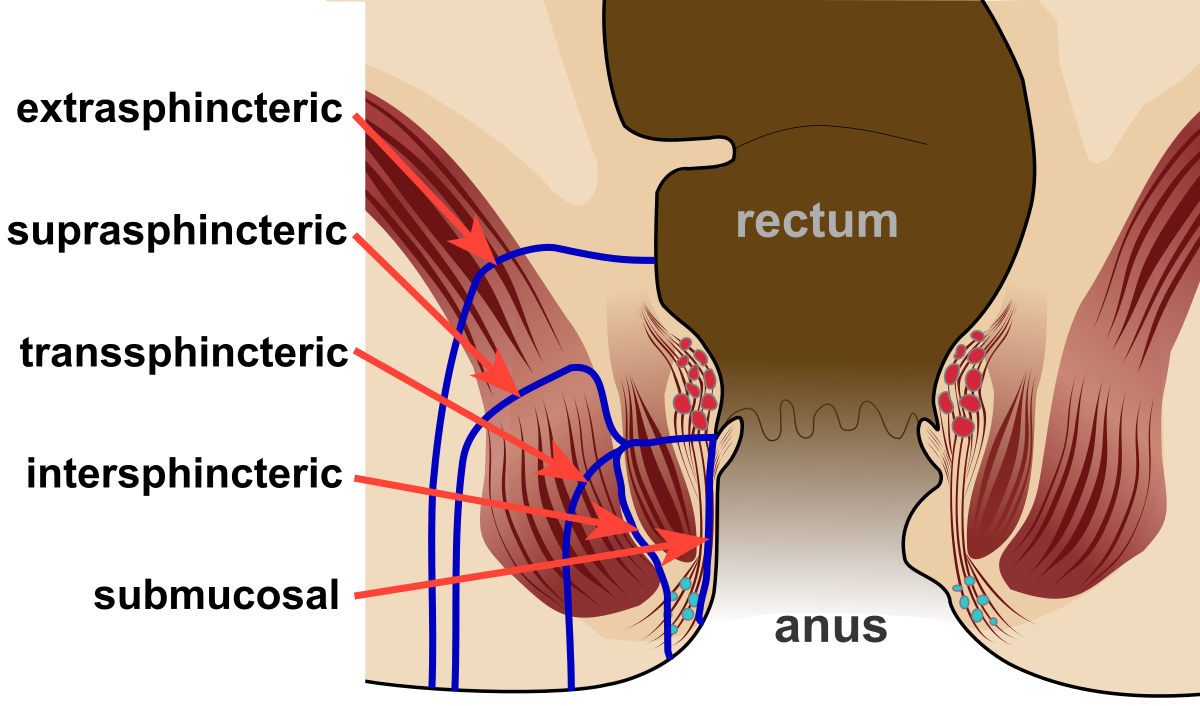Fistula is a discharging non healing recurrent wound in the vicinity of the anus. Most of the time these occur following a ‘perianal abscess’. These wounds do communicate with the anus. Some of these may have pus collections in relation to them. Depending on the site of internal opening of the fistula in the rectum or anus or depending on the route of the fistula tract in relation to anal sphincter fistula can be categorized as high or low fistula. Further depending of the spread of the side tracts and pus collections they can be categorized as simple or complex anal fistula.
Even though most of these are secondary to perianal abscesses some can be associated with inflammatory bowel disease, tuberculosis, injury, surgical procedures, child birth, cancer etc.
Your doctor will refer you to a surgeon for further management of this condition. A surgeon will carry out various investigations depending on the complexity of the fistula. Among them a camera test called a ‘Flexible sigmoidoscopy’ or a ‘Colonoscopy’ is a must. If he feels the fistula is a complex one he may order a MRI (Magnetic Resonance Imaging) scan as well.
Surgical management of this condition can vary depending on complexity of the problem. It may be a single stage surgery or staged surgery. The wound may be closed by suturing or left open. A thread like material may be left in the wound called a ‘Seton’. If you are treated with a seton; you need to see your surgeon periodically for assessment to decide on your next surgery. You will be left with a wound until all this is over by removal of the seton and definitive treatment.
Fistula recurrence is well documented. They can damage the anal sphincter as well. If someone is having more than one opening of fistula, your doctor or surgeon will start investigating for other diseases like tuberculosis, inflammatory bowel disease esp. Crohn’s disease.
